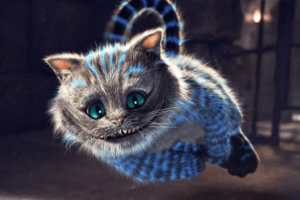Now Reading: Top 5 Hypoallergenic Cat Breeds
-
01
Top 5 Hypoallergenic Cat Breeds
Top 5 Hypoallergenic Cat Breeds

Generally speaking, if you are severely allergic to cats that means you will never keep one in your house, even if you are crazy about them. However, if you are just slightly allergic to cats then you might have a chance to own one. These are the top 5 hypoallergenic breeds that can be taken into consideration.

1. Balinese
Features: Balinese cats, often referred to as the “longhaired Siamese,” produce much less of the Fel d1 and Fel d4 protein allergens that cause allergies. There is a misconception that cat hair itself triggers allergies. It’s actually the proteins that exist in cat’s saliva and skin oils, which cause allergic reactions. They are carried through the home by shedding fur.
Basic Info
| Origin | United States |
| Weight | 5-10 pounds |
| Other Names | * |
| Life Span | 9-15 years |
| Coat | Longhair |
| Fur Color | Seal, chocolate, blue and lilac |
| Groom | Often |
| Recognition | ACFA; TICA |
| Health | Lymphoma; Amyloidosis; Asthma/Bronchial disease |
History: The Balinese is named for the exotically graceful dancers on the Indonesian island of Bali and the breed is a longhaired variety of Siamese. Although longhaired Siamese appeared earlier, the Balinese did not begin to be developed as a breed until the 1940s and 1950s.

2. Cornish Rex
Features: The Cornish Rex has no hair except for down and is known for its curly coats that drop less dander. Most breeds of cats have three types of hair in their coats: the outer fur or “guard hairs,” “awn hair” and “down hair” that is about 1 cm long. Even allergic reactions from cats are not the result of hair length; the Cornish Rex is widely reported to cause little to no allergic reaction.
Basic Info
| Origin | United Kingdom |
| Weight | 6-10 pounds |
| Other Names | * |
| Life Span | 11-15 years |
| Coat | Longhair |
| Fur Color | White, Black, Blue, Red, Cream, Chocolate, Lavender, Tabby colors etc. |
| Groom | Occasionally |
| Recognition | ACFA; CCA, All Registries |
| Health | Congenital hypotrichosis; Umbilical hernia; Hypertrophic cardiomyopathy |
History: Cornish Rex originated from a curly-coated kitten born in 1950 that is a shorthaired tortoiseshell and white pet cat named Serena, after reproductions and hybridizations by Ennismore, a new breed appeared that is the Cornish Rex.

3. Sphynx
Features: The Sphynx is a breed of cat known for its lack of coat. They are regarded as hypoallergenic cats partly because they have no fur to trap the allergens from their saliva and oil during self-grooming sessions. But caring for the Sphynx needs a warm environment.
Basic Info:
| Origin | Ontario, Canada |
| Weight | 6-12 pounds |
| Other Names | * |
| Life Span | 8-14 years |
| Coat | Hairless |
| Fur Color | * |
| Groom | Never |
| Recognition | CFA |
| Health | Urticaria pigmentosa, Hypertrophic cardiomyopathy |
History: The hairless Sphynx came about by accident when Elizabeth, a black and white domestic cat in Toronto gave birth to a hairless kitten called Prune, Elizabeth’s owner recognized that Prune is unique and try to reproduce him. Then He and other hairless kittens that were born in the mid – to late 1970 formed a new breed, including the Devon Rex. The gene for hairlessness is recessive, thus some of the offspring were hairless, while others had fur.

4. Oriental Shorthair
Features: The Oriental Shorthair is a member of the Siamese family of breeds and can be found in various solid colors and patterns (over 300). They have a very short, fine coat that infrequently sheds, making it a highly recommended hypoallergenic cat.
Basic Info:
| Origin | United States |
| Weight | 8-17 pounds |
| Other Name | Foreign Type |
| Life Span | 10-15 years |
| Coat | Shorthair |
| Fur Color | Solid, shaded, smoke, parti-color, bi-color, tabby |
| Groom | Occasionally |
| Recognition | CFA, GCCF, WCF |
| Health | Amyloidosis, Asthma, Congenital heart defects |
History: The Oriental is a human-made cat breed and is best described as a color remake of the original “black and white” Siamese. The breed developed from a hybridization based on Siamese and combining with other genes like Russian Blues, British Shorthairs, and Abyssinians. In few generations, two kinds of cats that look like Siamese were born; cats with Siamese points were used in Siamese breeding programs, but the non-pointed cats became the basis for a new breed: the Oriental.

5. Bengal cat:
Features: Bengals is one of the least hypoallergenic cats. Most people who are allergic to cats have either no allergic reaction or a milder response to Bengal cats when compared to the majority of other breeds because they have a unique coat that requires less maintenance than other breeds and as a result don’t groom themselves as often. Thus their fur contains less allergen-rich saliva. Besides, they don’t shed much, which means dander in their fur doesn’t get spread around as much.
Basic Info:
| Origin | United States |
| Weight | 8-15 pounds |
| Other Names | * |
| Life Span | 10-16 years |
| Coat | Shorthair |
| Fur Color | Brown tabby, seal mink tabby, black silver tabby, seal silver lynx point |
| Groom | Occasionally |
| Recognition | ACFA, TICA |
| Health | Urticaria pigmentosa, Hypertrophic cardiomyopathy |
History: Bengals take their name from the Asian leopard cat’s scientific name, Felis bengalensis. They were created through crosses with Asian leopard cats.

General Disclaimer: The information provided in this blog is for informational purposes only. Bell Rhythm makes no warranties regarding the accuracy or completeness of the content. Readers are advised to verify details independently before making decisions based on the information provided.
Content Disclaimer:This blog is intended to share general knowledge and insights. It is not meant to replace professional advice or guidance. Bell Rhythm does not endorse or guarantee the accuracy of any information presented here.
Advertising Disclaimer:This blog may include affiliate links or advertising content. Bell Rhythm may earn a commission from purchases made through these links, which helps support the platform. However, all opinions expressed are independent and based on our editorial standards.
Affiliate Disclosure:Some links in this blog may direct you to external websites, and Bell Rhythm may receive a commission for purchases made through these links. This does not influence the integrity or neutrality of the content provided.
Third-Party Links Disclaimer: This blog may contain links to third-party websites. Bell Rhythm does not assume responsibility for the accuracy, content, or policies of external websites. Readers are encouraged to review the terms and privacy policies of linked sites.
Legal Disclaimer: Bell Rhythm does not guarantee the safety, reliability, or quality of any products, services, or recommendations mentioned in this blog. Use any information or purchase products at your own discretion and risk.
Stock Image Disclaimer: Images featured in this blog are for illustrative purposes only. They may not reflect actual locations, products, or scenarios discussed in the content. These images are intended solely to enhance the reader’s experience.
Results Disclosure: The experiences or suggestions mentioned in this blog may vary from person to person. Outcomes are not guaranteed and depend on various factors, including individual preferences and circumstances.
Copyright Disclaimer: This content is the property of Bell Rhythm and is intended for personal use only. Redistribution or unauthorized use of this blog’s content is strictly prohibited.



















